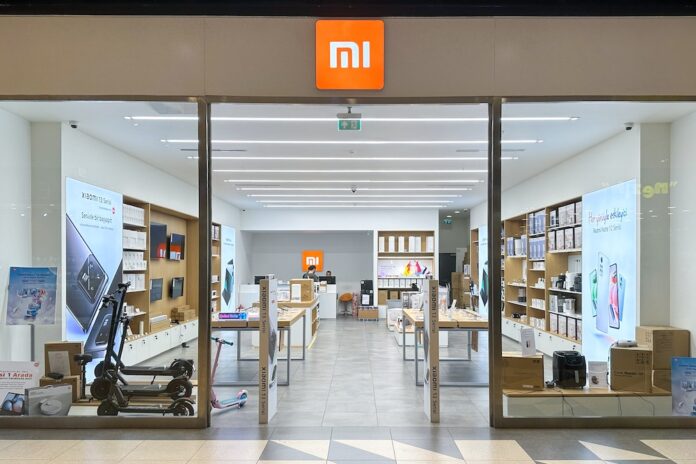Headaches mount for the trillion-dollar company mount as EU begins DMA proceedings to specify Apple’s interoperability obligations
Xiaomi captured second place in terms of global smartphone sell-through volumes in August 2024, the first time after August 2021, even as its sales volumes remained flat MoM, compared to Apple’s seasonal decline during the same period according to preliminary numbers from Counterpoint Research’s Smartphone 360 Monthly Tracker.
Xiaomi has been one of the fastest-growing smartphone brands in 2024, helping the global market’s path to recovery. And the company is continuing to innovate. Earlier this week Chinese press revealed Xiaomi obtained a design patent for a triple-fold smartphone design way back in December 2022 so will inevitably follow Huawei’s Mate XT launch at some stage.
In August, Xiaomi outperformed the market, with seasonal declines in its key markets being offset by promotions-led growth in Latin America. Following its supply struggles in 2022, Xiaomi, like the rest of the smartphone industry, had to cope with a challenging macroeconomic and geopolitical environment in 2023. After a weak 2022 and H1 2023, Xiaomi successfully altered its product, sales and channel strategy and is now finally reaping benefits, enjoying strong growth over the past year and growing YoY nearly every month.
“Xiaomi has adopted a leaner product strategy this year, focusing its energies to create one hero model per price band, rather than launching multiple devices in one segment. Besides, it has also re-energized its sales and marketing focus while continuing expansion into newer markets and consolidating its position in existing markets,” said Counterpoint Research director Tarun Pathak. “While entry-to-mid-tier devices continue to show strong performance for Xiaomi, it has also made inroads into the premium segment with foldable and ‘ultra’ devices.”
Most of Xiaomi’s key markets have seen economic recovery over the past few quarters, which has been most beneficial for demand in lower price bands. Xiaomi is especially strong in the lower price bands, i.e. <$200, more so following the launch of its price-competitive 5G devices Redmi 13 and Note 13 series. Counterpoint said the Redmi devices have been hugely popular, helping Xiaomi gain share across all its key markets, especially in India, Latin America, Southeast Asia and Middle East and Africa.
Sliding to Apple 16
While Xiaomi capturing the number two spot in August was largely due to its aggressive growth in recent quarters, Counterpoint said Apple’s seasonal slide was also a factor. August tends to be Apple’s weakest month in a given calendar year due to its September phone launches. Counterpoint conceded the launch of the iPhone 16 series is likely to propel Apple back to number two – or even the #1 spot – in the coming months as sales ramp up. However, much will hinge on the sporadic arrival of Apple Intelligence and how the world’s regulators – looking at you EU – react to it.
Digital Market Act-ion
On cue, the European Commission kicked off two “specification proceedings” to “assist” Apple in complying with its interoperability obligations under the Digital Markets Act. These are designed to ensure Apple complies with rules requiring it to open up its closed ecosystem to rivals or risk a possible significant fine – up to 10% of its global annual turnover.
This process explains what Apple must do to meet Digital Markets Act (DMA) requirements, which came into effect last year. In a statement, EU antitrust chief Margrethe Vestager said the first proceeding targets iOS connectivity features and functionalities for smartwatches, headphones, virtual reality headsets and other internet-connected devices. It will specify how Apple will provide effective interoperability with functionalities such as notifications, device pairing and connectivity.
The second proceeding concerns how Apple addresses interoperability requests submitted by developers and third parties for iOS and iPadOS, with the company told ensure a transparent, timely, and fair process. The Commission will conclude the proceedings within 6 months of their opening.
Apple warned Reuters about the risks of unintended consequences: “Undermining the protections we’ve built over time would put European consumers at risk, giving bad actors more ways to access their devices and data.” And given Apple’s push to keep privacy paramount, the EU does risk a consumer backlash from Apple users if they were unintentionally less protected following any remedies. Naturally, Android users would see this as schadenfreude.
Regardless, Apple has already made several changes to its DMA compliance plan both before and since the Commission’s preliminary breach finding. This process has only reached the end of the beginning.



